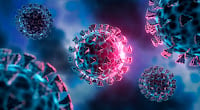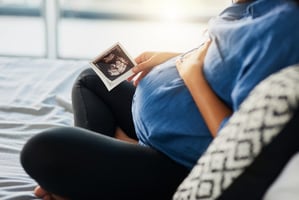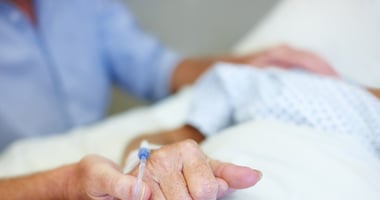Study Finds No Association Between In Utero COVID Exposure and Developmental Delays

Children who were exposed to COVID-19 while in the womb do not appear to have any neurodevelopmental impairments over the first two years compared with those who were not exposed, according to a study in JAMA Network Open.
Eleni G. Jaswa, M.D., M.Sc., M.A.S., of the University of California, San Francisco, and colleagues examined data from 2,003 mothers and their children who participated in a prospective study assessing the safety of pregnancy during the coronavirus pandemic. Among the participating mothers—recruited between May 14, 2020, and August 23, 2021—217 (10.8%) were infected with COVID-19 during pregnancy.
All the mothers completed the Ages & Stages Questionnaires, Third Edition (ASQ-3), when their children were 12, 18, and 24 months of age. The ASQ-3 measures progress in multiple developmental domains: communication, gross motor skills, fine motor skills, problem-solving, and social skills.
At all three time points, the percentage of children with a potential neurodevelopmental delay—defined as scoring below the age-specific cutoff in one or more ASQ-3 domains—was slightly higher in the group exposed to COVID-19 than the non-exposed group. For example, at 12 months, 32.3% of exposed children had abnormal ASQ-3 screens compared with 29.4% of unexposed children.
However, after adjusting for differences in demographics and other variables such as enrollment date to account for evolving viral strains, the researchers identified no association between COVID-19 infection during pregnancy and an increased risk of neurodevelopmental delays at any time point. Follow-up analyses exploring the trimester of infection, presence or absence of fever, or infection occurring before or after vaccination also did not find any differential risk of neurodevelopmental delay.
In an accompanying commentary, Andrea G. Edlow, M.D., M.Sc., of Massachusetts General Hospital cautioned that given this study’s small sample of exposed children and the fact that the ASQ-3 is not 100% accurate, some clinical risk might remain hidden. Edlow co-authored a 2022 study that assessed electronic health record data and found children exposed to COVID-19 in the womb had higher rates of neurodevelopmental diagnoses at 12 months.
“The study by Jaswa and colleagues is an important, carefully conducted and analyzed step toward understanding whether SARS-CoV-2 is like other viruses in contributing risk for adverse neurodevelopmental outcomes, or whether it is somehow different,” Edlow wrote. In the context of other studies with different conclusions, “the most honest answer is the best one: We do not yet know.”
For related information, see the Psychiatric News article “COVID-19’s Impact on Development Remains Unclear.”
(Image: Getty Images/iStock/peterschreiber.media)
Don't miss out! To learn about newly posted articles in Psychiatric News, please sign up here.





